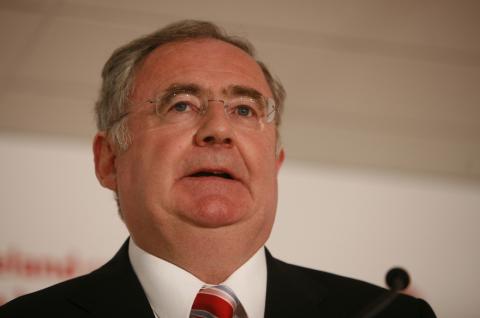Winning back the public’s trust

The public’s trust in politicians and politics can be restored, but only if politicians act to earn that trust. By Eoin Ó Broin.
The public outpouring of self-pity by politicians during the Christmas holidays would make you think that it’s a hard life being a TD and even harder being a Minister.
Yes the hours are long and the workload heavy. But with a salary of €92,000 per year for TDs, a Ministerial salary of €169,000 per year and a lavish system of expenses even after the reductions announced in December’s budget, clearly the financial rewards are good.
In fact they are amongst the best in the entire world.
Nobody is forced to be a politician. We do it out of choice. Many of us do it out of conviction. And we enjoy our work.
Yet, following the debate through December and January it seemed as though our politicians, particularly those in Government, were the victims of a massive smear campaign by a motley crew of anti-political journalists and abusive social media trolls.
Minister for Communications Pat Rabbitte went so far as to say that all of this negativity was undermining politics itself. What rubbish!
There is no doubt that public trust in politicians and the political process is at a low ebb. But to suggest that this is down to media criticism or negative tweeting is not just nonsense, it is a cynical attempt by some politicians to shift the blame for the problem on to others.
So what is the cause of the growing public mistrust of our political class and the political process?
Back in 2010 public anger was focused on Fianna Fáil. People had come to realise that the governments of Bertie Ahern and Brian Cowen were driven by political corruption and economic incompetence.
In the 2011 general election they voted overwhelming for change.
While nobody expected the problems created by politicians such as Micheál Martin, Willie O’Dea, Billy Kelleher and Michael McGrath to be fixed overnight, they did believe that the cause of the problem - Fianna Fáil - had been surgically removed from the body politic and a long slow recovery could now begin.
Fine Gael and Labour promised to be different. The described their election as a democratic revolution. The old ways were to be replaced by a new era of honesty, openness, fairness and reform.
Two years into office and the hope that was created in the days and weeks after February 2011 is now being replaced by a slow-burning anger.
People are not angry because the problems created by Fianna Fáil persist.
They are angry because Fine Gael and Labour have failed to deliver on key election promises and programme for government commitments.
Both parties included a clear commitment in the election manifestos not to introduce a property tax.
Labour said that child benefit was a red line issue and that Fine Gael should back off.
Yet two years into government and these promises, to name just two, have been broken.
The electorate feel lied to and cheated. That is why they are angry with the Government.
They are also angry because overpaid politicians continue to live on lavish salaries and expenses while imposing real financial hardship on people who simply have no more to give.
And so, having been burnt so badly and for so long by Fianna Fáil and now by Fine Gael and Labour, the public is increasingly of the view that the problem lies not with individual politicians or parties but with the political class itself and the political system we inhabit.
Pat Rabbitte is right when he says that politics has been demeaned, but it is he and his colleagues in the Fine Gael and Labour government who are primarily responsible for this, along with their Fianna Fáil mirror image.
So what is to be done? Can the public’s trust in politicians and politics be restored?
The straight answer is yes, but only if politicians act to earn that trust.
Politicians need to stop blaming others for problems they themselves have created. They need to stop breaking the promises they make during elections and abandoning commitments made in their government programmes. They also need to stop paying themselves bloated salaries and expenses.
These four simple steps would do much to restore public trust in politicians and the political process. They could be implemented starting from today.
And then we could get on with the more substantive debate about how best to repair the damage done by Fianna Fáil and rebuild our broken society and economy.
In politics talk is cheap. It is deeds that matter. So let’s stop with the self-pity, let’s take a little responsibility and let’s start to show some real leadership.
If the political class were to do this, public opinion and indeed the media would not be slow to respond positively.
Image top: The Labour Party.
